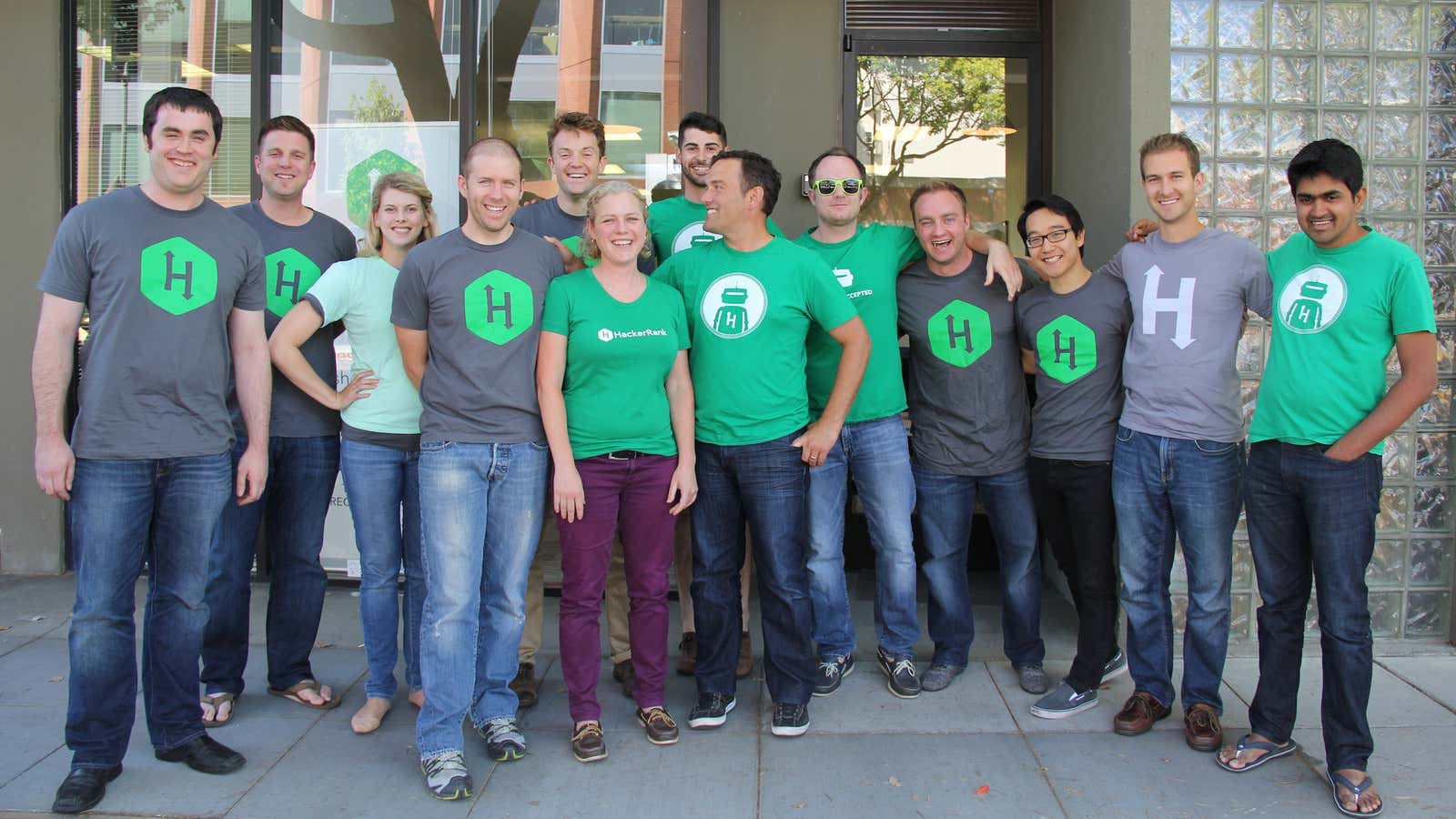Companies mostly guess at the quality of potential hires. They rely on exaggerated resumes, and often unreliable references. Most people aren’t especially good at interviewing, and are prone to bias. Even with exhaustive pre-screening, many interviews end up being a waste of time on both ends. HackerRank, a Bangalore and Palo Alto based start-up, aims to fix that problem for the competitive tech-hiring space.
The company has built a rapidly growing platform where computer scientists attempt coding challenges and contests that measure them—in real time—for speed, accuracy, completeness and elegance of their work. In turn, potential employers can invite individual high-ranked coders to attempt challenges, or host open contests to find candidates who meet their score requirements.
The company’s corporate product is HackerRank For Work, a platform that streamlines the technical interviewing process to save companies time.
Together, the two products replace resume-based screening with skills-based screening. It fits coding where objective skill is pretty easy to measure, but doesn’t work for things like marketing or client facing jobs.
The company recently raised $9.2 million in funding from Khosla Ventures and Battery Ventures.
The platform’s database of programmers is nearly half a million strong, and 50,000 visit each month. Corporate clients include Facebook (which has a long standing culture of code competitions), Yahoo, Amazon, Morgan Stanley, Bloomberg, Evernote, and Square. HackerRank was the first Indian company to be accepted into YCombinator.
“Our vision is to build a complete skills graph of all the hackers around the globe—that’s like the core problem,” co-founder and CEO Vivek Ravisankar tells Quartz.
The appeal to engineers is obvious: it’s an opportunity for anyone anywhere in the world to hone their skills, get a sense of how they stack up, and put themselves in front of companies. But more broadly, it’s an attempt to fix a fundamental issue in the way tech companies hire.
“A good resume does not directly correlate with the fact that you’re a good programmer, and vice versa,” says Ravisankar. “It doesn’t matter which school or which company or wherever you went, what matters is how skilled you are.”
HackerRank fits squarely into a movement towards bringing more quantitative data into the hiring process. Ravishankar says his goal is to create a process where skill alone matters, and to give companies a streamlined, data-driven filter to identify “diamonds in the rough” and hire them quickly.
Hiring is surprisingly subjective, and things like a candidate’s attractiveness, school prestige, and traits shared with an interviewer play a bigger role than they should. A product that seeks to eliminate such biases has great appeal in Silicon Valley, a place that likes to think of itself as a meritocracy.
